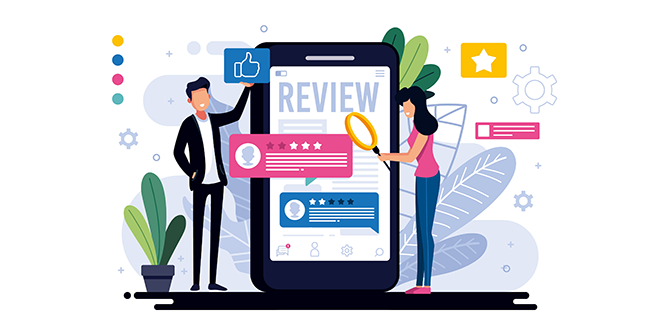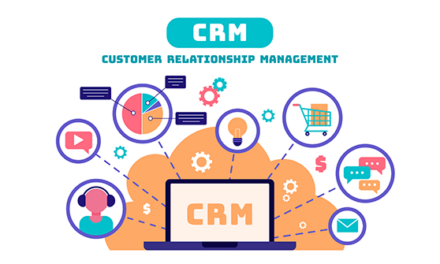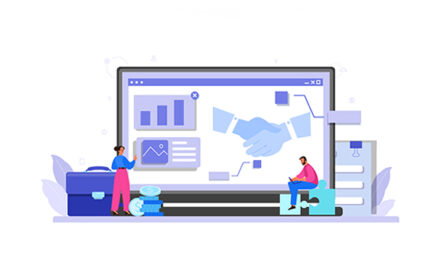Key Takeaways
- SMS (Short Message Service) is a powerful tool for consultants to engage prospects and clients in today's digital age.
- Strategies for engaging prospects through SMS include building a permission-based contact list, crafting compelling messages, utilizing automation and scheduling tools, and providing value-added content.
- Engaging clients through SMS involves maintaining ongoing communication, sending appointment reminders and notifications, soliciting feedback and reviews, sharing relevant resources and case studies, and identifying upselling and cross-selling opportunities.
In today’s fast-paced and ever-evolving digital landscape, effective communication has become the lifeblood of success for consultants.
As consultants strive to build relationships, generate leads, and nurture client satisfaction, they need a powerful tool to break through the noise and instantly capture attention.
That tool is SMS (Short Message Service), a dynamic and versatile channel that empowers consultants to connect directly with their prospects and clients.
Imagine being able to communicate with your audience instantly, right in the palm of their hands. SMS offers just that – a direct line of communication that transcends geographical boundaries and time zones.
With a few taps on a mobile device, consultants can send personalized messages that speak directly to the needs and interests of their prospects and clients. This level of personalization creates a profound impact, forging strong connections and driving engagement.
In this article, we will delve into the strategies, tips, and best practices that enable consultants to harness the power of SMS and elevate their engagement with prospects and clients to new heights.
Get ready to unlock the secrets of instant, direct, and personalized communication that will revolutionize how you engage prospects and clients.
Let’s embark on this transformative journey and discover how SMS can become your greatest ally in pursuing success as a consultant.
What is SMS?
SMS, which stands for Short Message Service, is a widely used communication technology that allows the exchange of short text messages between mobile devices.
It enables individuals and businesses to send and receive messages instantly, delivering concise and time-sensitive information directly to recipients’ mobile phones.
SMS messages typically have a character limit of 160 to 180 characters, ensuring that information is conveyed concisely and efficiently.
Why is SMS important for consultants?

SMS has emerged as a vital tool for consultants due to its unique advantages and impact on communication. Consultants who embrace SMS as part of their engagement strategy can benefit in several ways.
Instantaneous communication
SMS provides instant and direct communication with prospects and clients. Unlike emails or other forms of communication, SMS messages are typically read within minutes of being received.
This immediacy allows consultants to engage their audience promptly, ensuring timely responses and interactions.
High open and response rates
SMS boasts exceptionally high open and response rates compared to other communication channels. Research indicates that SMS messages have an open rate of over 98% and a response rate of approximately 45%.
These statistics highlight the effectiveness of SMS in capturing the attention of prospects and clients, increasing the likelihood of engagement and conversion.
Wide reach and accessibility
SMS has a broad reach and is accessible to almost everyone with a mobile phone. According to global mobile data, there are over 5.27 billion unique mobile phone users worldwide.
This widespread accessibility makes SMS an ideal channel for consultants to reach a broad audience, including prospects and clients who may not have access to email or other digital platforms.
Personalized and targeted messaging
SMS enables consultants to send personalized and targeted messages to prospects and clients. Consultants can address recipients by name, customize messages based on their specific needs, and tailor offers and recommendations accordingly through SMS.
This level of personalization enhances engagement, builds rapport, and increases the likelihood of conversion.
Convenience and efficiency
SMS provides a convenient and efficient means of communication for both consultants and their audiences. It eliminates the need for lengthy phone calls or waiting for email replies.
Consultants can quickly send essential updates, appointment reminders, or time-sensitive information via SMS, ensuring their messages are received and acted upon promptly.
Similarly, recipients can quickly respond to SMS messages at their convenience, making it a hassle-free mode of communication for everyone involved.
Strategies for engaging prospects through SMS
Engaging prospects effectively through SMS requires a well-planned strategy. Here are some key strategies that consultants can employ:
Building a permission-based contact list
The foundation of successful SMS engagement lies in building a permission-based contact list. Consultants should seek explicit consent from prospects to receive SMS messages.
It can be achieved through various methods, such as opt-in forms on websites, landing pages, or during in-person interactions.
Building a quality contact list ensures that recipients are genuinely interested in the consultant’s services, increasing the chances of engagement and conversion.
Crafting compelling SMS messages
Crafting compelling SMS messages is essential to capture recipients’ attention and drive engagement. Here are some key considerations for crafting effective SMS messages:
- Clear and concise content
SMS messages have a character limit, typically 160 to 180 characters. Therefore, it’s crucial to deliver a clear, concise message that communicates the value proposition quickly.
Consultants should focus on essential information, avoiding jargon and unnecessary details.
- Strong call-to-action
A strong call-to-action (CTA) is vital to prompt recipients to take the desired action. Consultants should communicate what they want the recipients to do, whether scheduling a consultation, downloading a resource, or visiting a website.
The CTA should be concise, compelling, and easy to follow.
- Personalization and customization
Personalization goes a long way in making SMS messages relevant and engaging. Therefore, consultants should use recipients’ names whenever possible and tailor the content to their needs or interests.
By genuinely understanding the recipients’ challenges or goals, consultants can establish a personal connection and increase the likelihood of engagement.
- Utilizing automation and scheduling tools
To efficiently manage SMS engagement, consultants can leverage best SMS marketing software. This software allows consultants to schedule messages in advance, set up automated responses, and segment their contact lists based on various criteria.
As a result, automation helps consultants streamline their communication efforts, save time, and ensure consistent messaging across different prospects and clients.
- Providing value-added content
To keep prospects engaged and interested, consultants should provide value-added content through SMS. It includes tips, insights, industry news, and updates relevant to the recipients’ interests or industries.
By sharing valuable information, consultants position themselves as trusted advisors, nurturing relationships with prospects and increasing the chances of conversion.
Engaging clients through SMS
SMS can also play a vital role in engaging existing clients and fostering stronger relationships. Here are some strategies for effectively engaging clients through SMS:
- Maintaining ongoing communication
Regular communication is crucial for maintaining strong client relationships. SMS can be used to keep clients updated on project progress, share relevant information or resources, and address any questions or concerns.
By proactively reaching out, consultants demonstrate their commitment to client success and foster a sense of trust and partnership.
- Sending appointment reminders and notifications
SMS is an excellent channel for sending appointment reminders and notifications to clients. Consultants can send automated SMS reminders a day or a few hours before scheduled meetings, ensuring clients are well-prepared and reducing the chances of no-shows.
Additionally, consultants can use SMS to notify clients about essential updates, such as changes in project timelines or upcoming deadlines.
- Soliciting feedback and reviews
SMS provides a convenient way for consultants to solicit client feedback and reviews. For example, after completing a project or delivering a service, consultants can send SMS messages asking clients to provide feedback or leave a review.
This feedback helps consultants improve their services and serves as social proof for attracting new prospects.
- Sharing relevant resources and case studies
SMS can be utilized to share relevant resources and case studies with clients. For example, consultants can send links to articles, whitepapers, or case studies that align with the client’s interests or address their specific challenges.
By providing valuable resources, consultants demonstrate their expertise and commitment to client success, establishing themselves as trusted advisors.
- Upselling and cross-selling opportunities
SMS presents opportunities for consultants to upsell or cross-sell their services to existing clients. By carefully analyzing clients’ needs and preferences, consultants can craft targeted SMS messages highlighting relevant additional services or upgrades.
Consultants should ensure that the upsell or cross-sell offers provide clear value and align with the client’s goals.
Best practices for SMS engagement
To maximize the effectiveness of SMS engagement, consultants should adhere to best practices. Here are some key considerations:
Obtaining proper consent and adhering to privacy regulations
Consultants must obtain proper consent from recipients before sending SMS messages.
Therefore, following privacy regulations and guidelines to protect recipients’ privacy and ensure compliance with applicable laws, such as obtaining opt-in consent and providing opt-out options, is essential.
Segmenting and targeting recipients
Segmenting and targeting recipients based on their interests, preferences, or stage in the consulting journey can significantly improve engagement.
Consultants should use their data about prospects and clients to create segmented lists and send tailored SMS messages that resonate with each group.
Timing and frequency of messages
Timing and frequency play a crucial role in SMS engagement. Therefore, consultants should consider the recipients’ time zones and preferences when scheduling messages to ensure they are delivered at a time when they are most likely to be read.
Additionally, finding the right balance between staying in touch and avoiding message overload is essential to prevent recipients from feeling overwhelmed or annoyed.
Monitoring and analyzing performance metrics
Monitoring and analyzing the performance metrics of SMS engagement is essential for consultants to evaluate the effectiveness of their strategies and make data-driven improvements.
Key performance indicators (KPIs) to track include open, response, conversion, and unsubscribe rates. By regularly analyzing these metrics, consultants can identify areas of improvement, optimize their messaging, and enhance overall engagement.
Integrating SMS with other communication channels
By integrating SMS with other communication channels, consultants can leverage the strengths of each platform and provide a seamless and holistic engagement strategy. Here’s a closer look at how consultants can effectively integrate SMS with other channels:
Email integration
Email remains a popular and widely used communication channel. By integrating SMS with email campaigns, consultants can reinforce their messaging and increase the chances of reaching their audience.
For instance, consultants can use SMS to send a brief teaser or reminder about an upcoming email, prompting recipients to check their inboxes for more detailed information. This cross-channel integration enhances the visibility and impact of important messages, ensuring they don’t go unnoticed.
Social media integration
Social media platforms offer a vast landscape for consultants to connect with their audience. Consultants can drive engagement and generate leads more effectively by incorporating SMS into social media campaigns.
For example, consultants can include SMS opt-in options in their social media posts or advertisements, allowing interested individuals to receive updates and personalized messages directly to their mobile devices. This integration seamlessly transitions from social media engagement to more personalized one-on-one conversations.
Phone call integration
While SMS provides quick and convenient communication, there are instances where a phone call can offer a more personal touch. Consultants can create a comprehensive and personalized communication approach by integrating SMS with phone call follow-ups.
For instance, after an initial SMS conversation, consultants can schedule a follow-up phone call to delve deeper into the prospect’s needs or provide a more detailed consultation. This integration bridges the gap between instant messaging and more in-depth conversations, building stronger relationships with prospects and clients.
Website integration
Consultants can further enhance their engagement strategies by integrating SMS into their websites. By placing SMS call-to-action buttons or opt-in forms on their website, consultants can capture visitor information and initiate personalized SMS communication.
For instance, consultants can offer valuable resources or exclusive content in exchange for visitors opting in to receive SMS updates. In addition, this integration enables consultants to establish a direct line of communication with website visitors, nurturing them into qualified leads.
Case Studies: Successful SMS Engagement in Consulting
Examining real-life case studies can provide insights into consultants’ successful SMS engagement strategies. Here are a few examples:
Case Study 1: How Company X increased lead conversion using SMS
Company X, a consulting firm, implemented SMS engagement as part of their lead generation strategy. By using personalized SMS messages with strong CTAs, they were able to capture the attention of prospects and drive higher lead conversion rates.
They also integrated SMS with their email marketing campaigns, creating a cohesive and effective communication approach.
Case Study 2: Enhancing client satisfaction through SMS engagement
Consulting Firm Y implemented SMS engagement to enhance client satisfaction and strengthen client relationships. By regularly communicating project updates, sending appointment reminders, and soliciting feedback through SMS, they improved overall client experience and received positive reviews.
The personalized and timely nature of SMS communication played a significant role in their success.
Case Study 3: Driving repeat business with targeted SMS campaigns
Consulting Firm Z implemented targeted SMS campaigns to drive repeat business from their existing clients. By sending personalized offers, relevant resources, and exclusive promotions via SMS, they successfully upsold additional services and secured repeat engagements.
The high open rates and response rates of SMS played a pivotal role in their campaign’s effectiveness.
Challenges and considerations
While SMS engagement offers significant benefits, there are also challenges and considerations that consultants need to address:
Overcoming potential SMS delivery issues
SMS delivery can be affected by factors such as network congestion or the recipient’s phone settings. Therefore, consultants should promptly monitor and address any delivery issues to ensure their messages reach the intended recipients.
Choosing a reliable SMS service provider and testing message delivery across different networks and devices is essential.
Balancing automation with personalization
Automation tools can streamline SMS engagement, but it’s crucial to balance automation and personalization. Over-reliance on automation can result in generic messages that lack the personal touch.
Consultants should ensure that automated messages are still tailored to the recipient’s needs and preferences.
Respecting client preferences and privacy
Consultants must respect client preferences regarding communication channels and frequency. For example, some clients may prefer phone calls or emails over SMS.
Providing opt-out options and honoring clients’ communication preferences is essential to maintain a positive relationship.
Handling opt-outs and unsubscribe requests
When recipients opt-out or unsubscribe from SMS communication, consultants should promptly honor their requests.
It’s essential to have clear procedures to handle opt-outs and update contact lists accordingly to maintain compliance and respect recipients’ preferences.
Conclusion
In conclusion, SMS is a valuable tool for consultants to engage prospects and clients effectively.
By leveraging its benefits, implementing proven strategies, and considering best practices, consultants can harness the power of SMS to drive lead generation, enhance client satisfaction, and foster long-term client relationships.
Embracing SMS as part of a comprehensive communication strategy positions consultants for success in today’s digital landscape.






